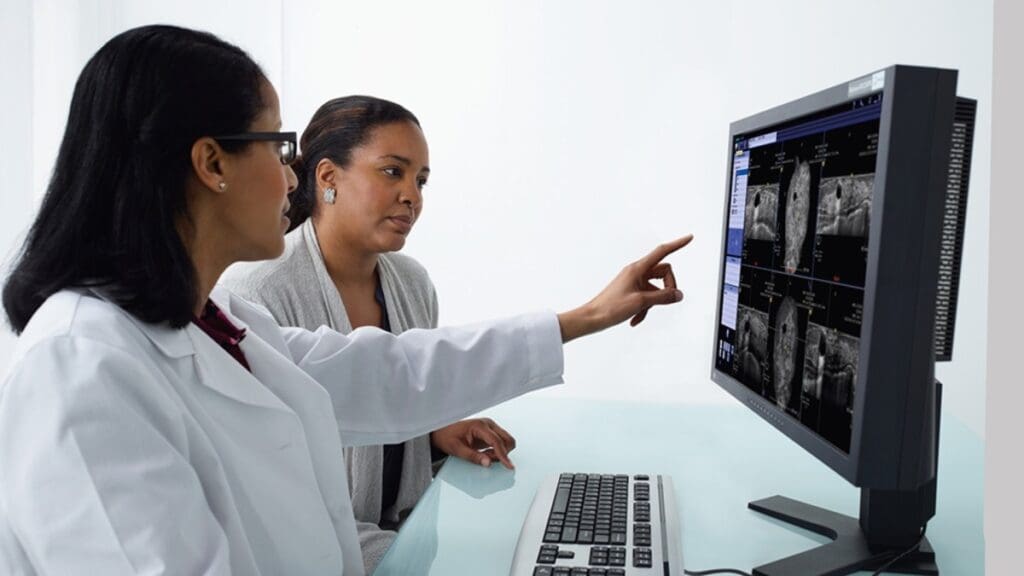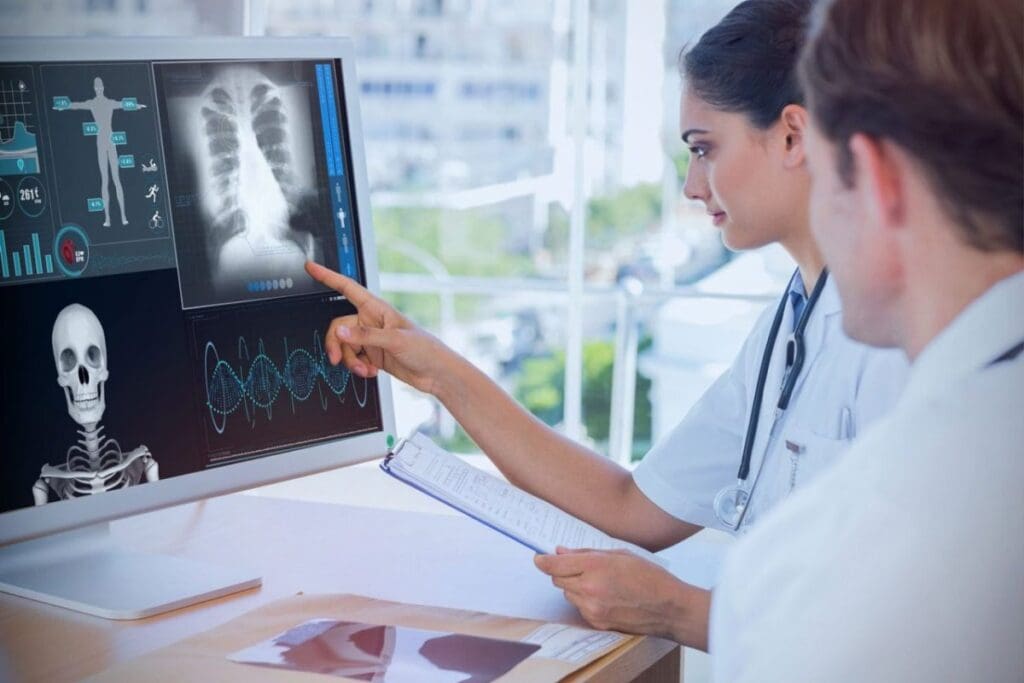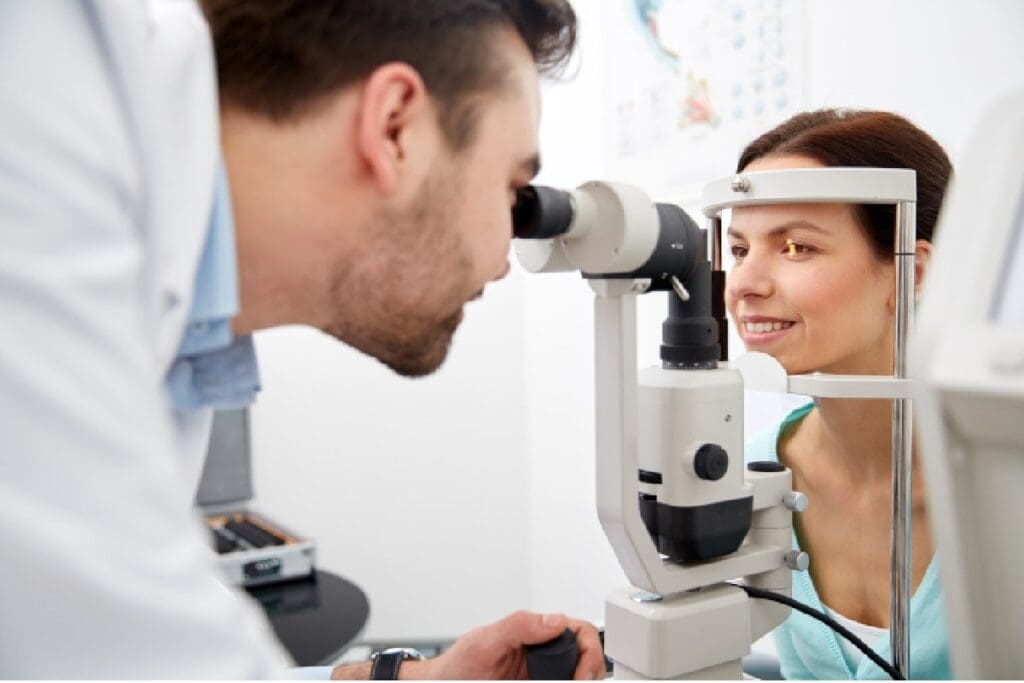Last Updated on November 24, 2025 by
Blood test for cancer is one of the most effective ways to detect certain types of cancer early. It’s important to know about the different health screenings to stay healthy. Health screenings can find problems before you even notice them. This lets doctors act early and improve outcomes.
At Liv Hospital, we follow the latest medical guidelines to ensure accurate blood tests for cancer and other medical screenings. We make sure our patients get the best possible care. Our screenings include cancer blood tests and other key medical examinations you should get every year.

Early detection of diseases can lead to better treatment and health. We have many screenings to fit each person’s needs. This way, we give our patients care that’s just right for them.
Health screenings are key in keeping us healthy. They help find diseases early. This means we can treat them before they get worse.
Early detection is important. It lets doctors start treatment when it works best. For example, cancer screenings catch tumours early. This makes treatment more likely to succeed.
Starting treatment early can greatly improve health outcomes. Catching colon cancer early can increase survival rates to about 90%. This shows why following screening guidelines is so important.

The CDC reports on how many people get screened in the US. It shows we can do better. Not everyone gets screened as much as they should.
Knowing who isn’t getting screened helps us fix this. We can use data to find out where to focus our efforts. This way, we can get more people to get screened.
Some people might not get screened because of barriers. They might not have insurance or can’t get to the doctor. We need to work on these issues to get more people screened.
Cancer screening tests are very important. They help find cancer early when it’s easier to treat. Early detection is key for better treatment and survival chances. It’s best to talk to your doctor about when to get screened.

Mammograms are a key tool for finding breast cancer early. They help improve treatment chances.
Some important mammogram facts are:
Screenings for colon cancer, like a colonoscopy, are vital. They remove polyps that could turn into cancer. Colonoscopy is suggested for people at 50.
Colonoscopy benefits include:
As medical tech gets better, these screenings become even more critical. By knowing the facts and following guidelines, we can catch and treat cancer better.
Blood tests are becoming key in finding cancer biomarkers. They help spot cancer early, even before symptoms show. This is a big step forward in cancer detection.
Cancer biomarkers are made by tumors or in response to them. When cancer cells die, they spill DNA and molecules into the blood. Tests can find these markers, showing if and what type of cancer is present.
Key aspects of cancer biomarkers in blood include:
Many blood tests are being made to find different cancers. Some of the most promising include:
For instance, liquid biopsies can detect genetic mutations associated with various cancers, making early detection non-invasive.
Even though blood tests for cancer are promising, they’re not perfect. They can sometimes give false positives, causing worry and extra tests. Also, how well they work can vary, missing some cancers or early stages.
Key considerations include:
As research goes on, blood tests for cancer will likely get better and more common. This could change how we detect and treat cancer early.
Regular cardiovascular screenings are key to keeping your heart healthy and preventing heart disease. Adults should make these screenings a part of their health routine.
Cardiovascular disease is a major cause of death globally. It’s vital to spot risk factors early. Blood pressure monitoring and cholesterol screening are important. They help check your heart’s health.
Adults should get their blood pressure checked every year. High blood pressure is a big risk for heart disease. Regular checks can spot problems early.
We suggest adults have their blood pressure checked yearly. If you have high blood pressure or other heart risks, check more often.
Cholesterol levels show how well your heart is doing. Knowing your cholesterol numbers is key to heart health. Adults should get their cholesterol checked often.
High levels of LDL cholesterol raise heart disease risk. Regular screenings help protect your heart and lower disease risk.
Doing certain medical exams every year is key to staying healthy. These tests help find problems early, so they can be fixed quickly.
It’s smart to get a full health check-up once a year. This includes many tests and exams based on your age, health, and risks.
Blood tests and lab work are important parts of a health check-up. They find issues like diabetes and high cholesterol early, even if you don’t feel sick.
Some important blood tests to get every year are:
Blood Glucose Test: Screens for diabetes or prediabetes. For more info, visit MedlinePlus.
It’s important to get your vision and hearing checked regularly. These tests catch problems early, before they get worse.
Vision tests can spot cataracts, glaucoma, and age-related macular degeneration. Hearing tests find hearing loss, common in older people.
Adding these screenings to your yearly health check-up helps keep you healthy and happy.
It’s important to know about diabetes screening options for early detection and management. Screening for diabetes helps find people at risk and manage their condition well. We’ll look at the main screening methods and risk factors that show when to screen earlier.
Fasting Blood Glucose and A1C tests are key in diagnosing and managing diabetes. The fasting blood glucose test checks blood sugar after not eating for a night. It shows current blood sugar levels. The A1C test looks at blood sugar levels over 2-3 months, showing long-term control.
These tests are vital for spotting diabetes and prediabetes, and for checking if treatment is working. Early detection with these tests can greatly improve treatment results by starting interventions early.
Some risk factors make it more likely to get diabetes, so screening should start earlier. These include a family history of diabetes, obesity, physical inactivity, and previous history of gestational diabetes or delivering a baby over 4 kg. People with these risk factors should talk to their doctor about when to get screened.
Also, those with hypertension or high cholesterol are at higher risk. Early screening can spot those at risk and help prevent type 2 diabetes.
By knowing these risk factors and using tests like fasting blood glucose and A1C, we can manage diabetes better and improve health outcomes.
Creating a personalized screening schedule is key to staying healthy. It considers your unique risk factors and health status. This way, you can make sure you get the screenings you need.
It’s best to talk to a healthcare provider to make this plan. Together, you can work on improving your health. This includes regular screenings and preventive care.
Having a personalized screening schedule helps you stay ahead of health problems. It’s a smart way to catch issues early. This proactive approach can lead to better health and a longer, happier life.
We offer many health screenings, like cancer tests and heart checks. These help find problems early and keep you healthy.
The timing of cancer tests varies based on your risk and health history. Talk to a doctor to find out when you should get tested.
Blood tests for cancer are being studied. Some can spot cancer early by looking for certain signs in the blood. But, it’s important to know their limits and how accurate they are.
We suggest checking your blood pressure every year. This helps catch problems early and prevent them.
Cholesterol tests show your heart risk. A doctor can help you understand the results and how to manage any risks.
Annual check-ups are key. They include blood tests and lab work to keep you healthy and catch problems early.
Vision and hearing tests are vital. They help find and treat problems early, keeping you healthy.
Fasting blood glucose and A1C tests are used to find and manage diabetes. A doctor can help you understand your results and how to manage your diabetes.
Knowing your risk factors, like family history and lifestyle, is important. A doctor can help you figure out if you need earlier screening.
Talking to a doctor is the best way to make a screening plan. They can tailor it to your needs and risk factors.
American Cancer Society. (2025). 80% in every community. National Colorectal Cancer Roundtable. https://nccrt.org/our-impact/80-in-every-community/
American Diabetes Association. (2025). 2. Diagnosis and Classification of Diabetes: Standards of Care in Diabetes—2025. Diabetes Care, 48(Supplement_1), S27-S43. https://doi.org/10.2337/dc25-S002
American Heart Association. (2023). Cholesterol recommendations. https://www.heart.org/en/health-topics/cholesterol/cholesterol-recommendations
Centers for Disease Control and Prevention. (2025). Use of cancer screening tests, United States, 2023. https://www.cdc.gov/pcd/issues/2025/25_0139.htm
National Breast Cancer Foundation. (2023). Breast cancer screening guidelines. https://www.nationalbreastcancer.org/breast-cancer-screening-guidelines/
Subscribe to our e-newsletter to stay informed about the latest innovations in the world of health and exclusive offers!